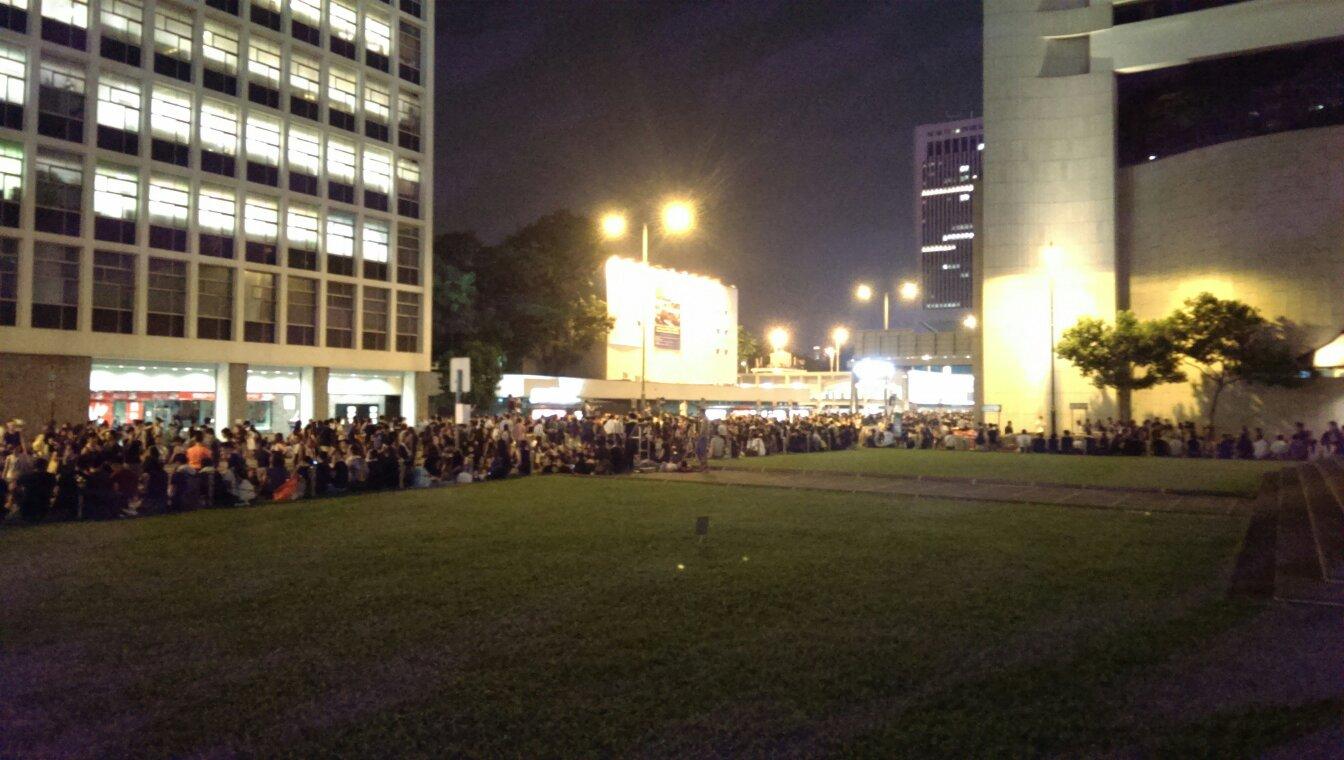- Reaction score
- 6,168
- Points
- 1,260
This is becoming more complex and more 'deeply seated:' media outlets that, normally, focus on pop music and food are publishing highly critical opinion pieces and in high schools in the suburbs (Tung Chug, near the airport to be specific) the students have left their classes to hold day long "teach ins" (who else remembers the 1960s? :nod: ) in support of the kids - they're mostly kids - downtown at Occupy.
There are, of course, comparisons of kids with umbrellas and kids facing down tanks ...


... it's too early to make that comparison, but the memory is strong and Beijing knows it.
CY Leung is bearing the brunt of the criticism, still, but I think that's a little unfair. Li Fei, deputy secretary general of China's National People's Congress (NPC) Standing Committee in Beijing is the man responsible for this current mess. It is a pig headed insistence on "one country-one system" amongst the Li faction in Beijing, the hardliners, that has caused all this. Now, in fairmness, most people want "one country-one system" but they really want China's system to evolve to look, first, more like HK's and then more like Taiwan's and then, eventually, like Singapore's: democratic, albeit very conservatively (Confucian) democratic, honest, responsive and efficient; that's the Lee factions' aim. The Li faction, the hardliners, on the other hand, are often doctrinaire Maoists who (honestly) believe that they, the old, powerful men in the political centre, in and around the Zhongnanhai, must know best.
There are, of course, comparisons of kids with umbrellas and kids facing down tanks ...


... it's too early to make that comparison, but the memory is strong and Beijing knows it.
CY Leung is bearing the brunt of the criticism, still, but I think that's a little unfair. Li Fei, deputy secretary general of China's National People's Congress (NPC) Standing Committee in Beijing is the man responsible for this current mess. It is a pig headed insistence on "one country-one system" amongst the Li faction in Beijing, the hardliners, that has caused all this. Now, in fairmness, most people want "one country-one system" but they really want China's system to evolve to look, first, more like HK's and then more like Taiwan's and then, eventually, like Singapore's: democratic, albeit very conservatively (Confucian) democratic, honest, responsive and efficient; that's the Lee factions' aim. The Li faction, the hardliners, on the other hand, are often doctrinaire Maoists who (honestly) believe that they, the old, powerful men in the political centre, in and around the Zhongnanhai, must know best.











